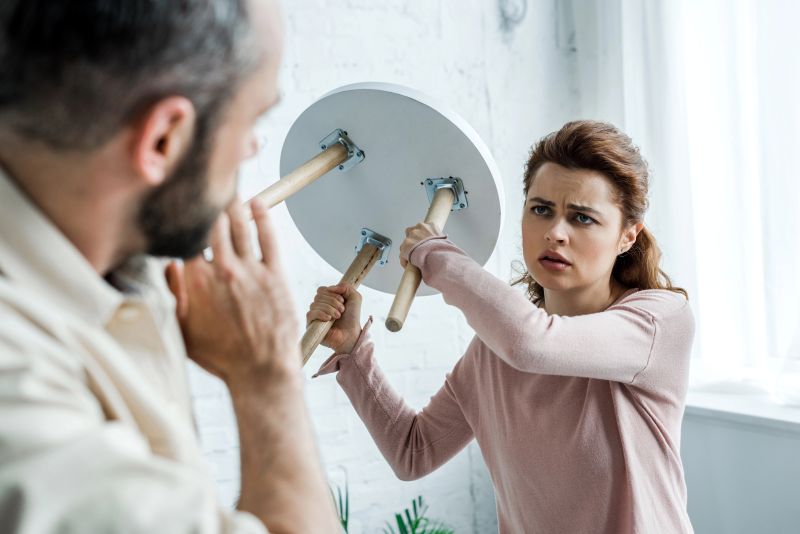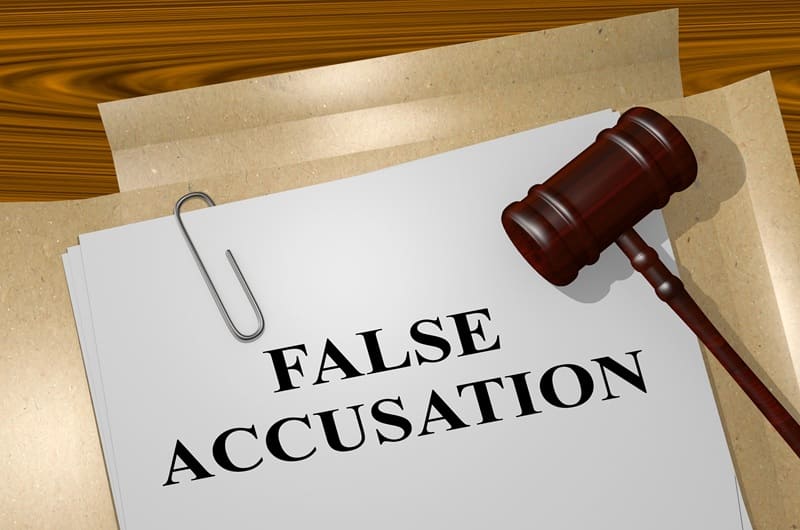What Counts As Domestic Violence In Virginia Law
What Counts As Domestic Violence In Virginia Law
Preview:
Virginia law defines domestic violence broadly, encompassing physical harm, threats, stalking, and emotional abuse by family or household members. Understanding these definitions is crucial, as the consequences of a charge are serious. Defense law firms play a vital role in protecting the rights of the accused, evaluating evidence, and navigating the legal process.
Domestic violence charges in Virginia are serious. They can lead to jail time, fines, and a criminal record. But what exactly qualifies as domestic violence under Virginia law? The answer is broader than many people realize.
Virginia’s Definition Of Domestic Violence
In Virginia, domestic violence is legally referred to as “family abuse.” According to the Virginia Code, family abuse includes any act involving violence, force, or threat that results in physical injury or places someone in reasonable fear of death, sexual assault, or bodily injury. This definition covers a wide range of behaviors, not just physical assaults.
The law applies when a family or household member commits the alleged abuse. This includes:
- Spouses and ex-spouses.
- Individuals who share a child.
- Parents, children, and siblings.
- In-laws who live in the same home.
- Individuals who have cohabited within the past year.
Understanding who qualifies is essential, as the relationship between the parties affects how the law is applied.
In short, domestic violence in Virginia isn’t limited to bruises or broken bones. If someone feels threatened or harmed by a person close to them, the law may see it as abuse, even if no one was physically touched. That’s why it’s important to recognize all the behaviors that could trigger legal consequences.
Let’s take a closer look at the different actions that may fall under this law.
Forms Of Abuse Recognized By Law
When most people hear “domestic violence,” they picture physical harm. But Virginia law sees the issue more broadly. It acknowledges that abuse comes in different forms, some visible, others hidden beneath the surface.
This matters because what one person might dismiss as “just an argument” could legally be grounds for protective action or criminal charges. Here’s how the law breaks it down.
Physical Harm
Physical abuse is what people most commonly associate with domestic violence. It includes acts like hitting, pushing, slapping, or any behavior that causes bodily injury.
Importantly, the law doesn’t require visible bruises or hospital visits. A shove that causes pain or a scratch from a heated exchange can qualify. Even a single incident can lead to charges.
Threats
Threatening violence, even if no physical harm occurs, can still be considered abuse. Virginia law focuses on the effect the threat has on the victim, especially if it instills genuine fear of injury or death.
These threats don’t need to be shouted. A quiet, menacing statement or an intimidating gesture can be just as serious in the eyes of the law.
Stalking
Repeatedly following someone, showing up uninvited, or constantly contacting them to the point it causes fear, is stalking. It’s another form of abuse that Virginia takes seriously.
Stalking is often about control. A person might try to monitor their partner’s every move. Once it becomes a pattern, it crosses the legal line and becomes a criminal matter.
Emotional Abuse
Emotional or psychological abuse is trickier to define, but just as damaging. It includes manipulation, verbal attacks, intimidation, isolation, and controlling behavior.
This kind of abuse chips away at a person’s confidence and sense of safety. Although it’s harder to prove in court, it can still support a protective order or add weight to other charges.
Each of these behaviors, on its own or combined, can trigger a legal response under Virginia’s domestic violence laws. Recognizing the full scope of abuse helps both victims and the accused understand how serious these situations can become.
Now, let’s look at what happens when someone is charged and the possible consequences they might face.
Legal Consequences
Getting charged with domestic violence in Virginia is more than just a scare; it can turn your life upside down. The legal system doesn’t treat these cases lightly. From immediate restrictions to long-term penalties, the fallout can affect every part of a person’s life.
Even if it’s your first time facing a charge, the consequences can be swift and harsh. A misunderstanding or heated argument could spiral into criminal proceedings, protective orders, and a permanent mark on your record.
Criminal Charges
A first offense is usually charged as a Class 1 misdemeanor. This can mean up to a year in jail and a $2,500 fine. But if someone has prior convictions or the violence involved a weapon, things escalate quickly. It can become a felony, bringing years of prison time.
The charge also follows you. It shows up in background checks, affects employment, and may influence custody disputes or housing applications.
Protective Orders
When a charge is filed, a judge may issue a protective order. This can force the accused to leave their home, avoid contact with the alleged victim, and stay away from certain locations. These orders can last days or years, depending on the situation.
Violating a protective order is a separate crime. It can lead to jail time, even if the underlying case is still pending.
Loss Of Rights
A conviction may also mean losing certain civil rights, like owning firearms. That can impact military members, hunters, or anyone whose job involves carrying a weapon. And even without a conviction, the mere accusation can affect reputation, relationships, and mental health.
When the stakes are this high, facing the legal system alone isn’t just risky; it’s reckless. The right defense can make the difference between a dismissed charge and a criminal record.
Next, let’s break down what a defense attorney actually does in these cases and why their role is more than just courtroom drama.
How A Defense Attorney Can Help You
Facing a domestic violence charge isn’t just about defending your actions; it’s about defending your future. In Virginia, where these cases move fast and carry serious weight, having a skilled defense lawyer isn’t optional. It’s the only smart move.
People often assume hiring a lawyer is about getting someone to argue in court. But it’s so much more than that. A good defense firm looks at every detail, challenges weak evidence, and makes sure your side of the story gets heard.
Evaluating Evidence
One of the first things a defense attorney does is dig into the facts. Was there an actual threat or just a misunderstanding? Were there witnesses, texts, or videos? They sift through it all to find inconsistencies or exaggerations.
Sometimes charges come from emotional reactions, not criminal acts. A lawyer can help reveal when something was blown out of proportion.
Challenging Procedural Errors
Law enforcement has to follow certain rules. If an officer made a mistake, didn’t read your rights, entered your home without permission, or failed to document the scene properly, it can weaken the prosecution’s case.
Defense attorneys know how to spot these errors and use them to protect their clients. It’s not about “getting off on a technicality.” It’s about holding the system accountable.
Negotiating Plea Deals
Not every case goes to trial. In some situations, a lawyer may negotiate a deal, especially if the evidence is strong. This might mean reduced charges, counseling instead of jail, or community service.
Representing Clients In Court
If the case does go to trial, your lawyer becomes your voice. They present evidence, cross-examine witnesses, and challenge the prosecutor’s version of events.
A courtroom isn’t a place to wing it. It’s structured, technical, and high-stakes. A seasoned lawyer helps tip the scales back toward fairness.
Ultimately, a defense law firm acts as a shield. They don’t just defend the accused; they defend the right to due process, the right to a fair trial, and the idea that one charge shouldn’t define a person’s life.
Let The Irving Law Firm Represent You
At The Irving Law Firm, we understand how overwhelming a domestic violence charge can be. You may be feeling blindsided, scared, or just plain confused. We’ve worked with countless clients in your shoes, and we know how quickly these cases can spin out of control if you’re not properly represented.
That’s where we come in. We don’t just show up in court and speak on your behalf. We get to work early, reviewing evidence, listening to your side of the story, and building a strategy that fits your situation. Every case is different, and so is every defense. We make sure you’re not treated like just another case number.
If you’re facing a domestic violence charge, time isn’t on your side, but we are. Contact The Irving Law Firm today. Let’s talk. Let’s plan. And let’s protect what matters most: your freedom, your reputation, and your peace of mind.






